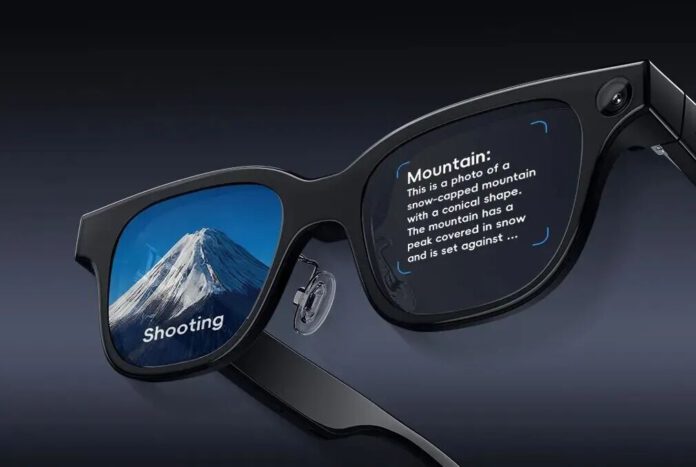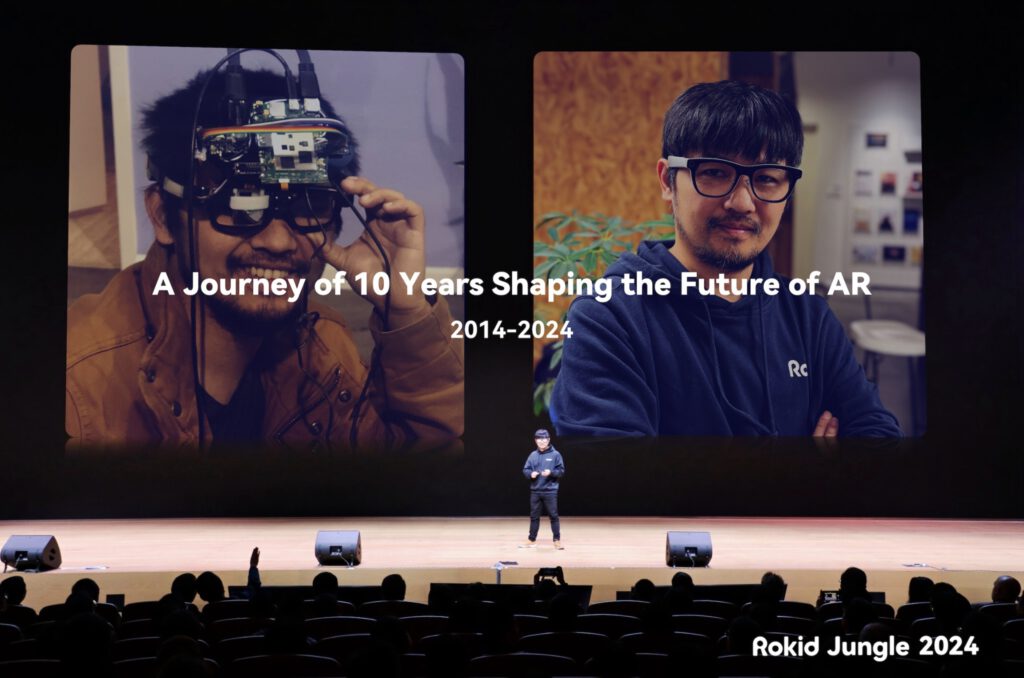
Smart glasses are no longer futuristic experiments. Users can now complete payments with a glance, follow cycling routes through visual overlays, and read real-time translation subtitles during conversations—all through eyewear that resembles ordinary fashion accessories. This shift marks the evolution of smart glasses from technical prototypes into lifestyle products and signals a broader redefinition of human–machine interaction.
On November 13, Hangzhou-based AI company Rokid and fashion eyewear brand BOLON jointly unveiled the Rokid China Chic Series and the BOLON AI Smart Glasses. Their collaboration underscores a new direction for the industry: technology must be wearable, elegant, and seamlessly integrated into daily life.
The BOLON AI Smart Glasses adopt a screenless design with a strong emphasis on aesthetics and comfort. The initial offerings include sunglasses and prescription frames in Geek Gray and Onyx Black, priced at around €266. The prescription version features 1.56-index blue-light-blocking lenses, while BOLON’s introduces three photochromic lens options—Classic Gray, Graphite Green, and Amber Brown—capable of full darkening within 25 seconds and blocking over 99% of UVA and UVB rays. Despite their capabilities, the glasses weigh just 38.5 grams, reflecting BOLON’s optical engineering expertise. Internally, they run on a Qualcomm AR1 processor that supports multiple mainstream AI models and incorporate a Sony 12MP camera with dual directional speakers.

According to Yang Guang, Marketing General Manager of BOLON Eyewear, the product balances technological sophistication with practical usability. Rather than overloading features, the focus is on functions that make AI accessible and valuable in daily scenarios. The division of labor reflects each company’s strengths: BOLON leads structural and aesthetic design, while Rokid develops the circuitry, functional system architecture, and battery layout. Yang describes the collaboration as strategically important. For BOLON, it enables expansion into the 3C and digital consumer market while extending expertise in eyewear fitting and vision correction into the smart eyewear category. For Rokid, the partnership strengthens fashion appeal, softens its traditionally tech image, and offers access to premium optical materials and lens technologies.
Rokid’s recent market performance amplifies the significance of this partnership. The Rokid glasses, first unveiled in late 2024 and officially launched in September 2025, achieved remarkable early results. CEO Mingming Zhu reported that 40,000 units sold out within an hour, and the first five days matched the company’s initial monthly projection. Rokid users now average nearly eight hours of daily wear, with cumulative usage exceeding 15 million sessions.
Notably, 81% of users actively produce and share content using the glasses. The user demographic has also shifted: tech professionals, once nearly half of the user base, now comprise just 16%, while adoption among teachers, construction workers, service staff, and agricultural workers has increased significantly. Zhu views this as evidence that smart glasses have moved beyond niche early adopters into mainstream acceptance. As comfort, aesthetics, and utility converge, he expects more manufacturers to push the category toward mass penetration.

The company has accordingly revised its ambitions. From an initial sales target of 100,000 to 150,000 units this year, Rokid now forecasts one million units next year, two to three million the following year, and beyond ten million the year after. Zhu also confirmed that the collaboration with BOLON is the first step in a broader global strategy, with additional co-branded international models planned.
Zhu argues that smart glasses are approaching a defining moment similar to previous inflection points in computing. Graphical user interfaces once reduced the learning cost of computers; AI interactions will remove the operational layer entirely. During this year’s Double 11 festival, Rokid recorded a tenfold sales increase and average daily usage surpassed eight hours—metrics he cites as proof that AI glasses are evolving from gadgetry into a new computing platform. Zhu believes this transition may constitute the category’s “iPhone moment,” an era in which advanced technology becomes invisible through natural integration into everyday routines.
This trajectory is reinforced by broader consumer trends. Wearables—watches, earbuds, and now glasses—have become daily necessities rather than optional accessories. For Gen Z users, who grow up native to digital and AI environments, smart glasses are not technological novelties but extensions of identity. They gravitate toward products that are aesthetically distinctive, socially expressive, and shareable. On social platforms, first-person vlogs captured with Rokid glasses demonstrate how smart eyewear allows users to document life without interrupting the moment by reaching for a phone. Navigation, audio playback, calling, and photography occur passively in the background. In trend-driven circles, owning Rokid glasses has become a marker of being “tech-forward,” much like how Apple product launches once defined cultural taste.
Gen Z consumer psychology makes clear that products succeed when they are engaging, visually appealing, and capable of expressing individuality. This is why the crossover between fashion and technology has become a critical tipping point for the smart glasses category. Rokid’s collaboration with BOLON injects stylistic credibility into its next-generation products, giving them stronger social resonance and broader cultural relevance. The result is a device that signals personal style as much as technological sophistication.
Rokid is simultaneously expanding its ecosystem of partners to enrich everyday usage. Integrations with platforms such as AutoNavi Maps, QQ Music, DingTalk, iQIYI, bilibili, and Taobao broaden the range of services accessible through the glasses. At the launch event, Rokid also announced full integration with the Alipay ecosystem, enabling the world’s first built-in payment feature for smart glasses. Users can simply look at a QR code, speak the payment amount, and confirm verbally to complete the transaction—an interaction that bypasses screens entirely.
The smart glasses category itself has evolved significantly since earlier attempts like Google Glass. Google’s early design was technologically ahead of its time but socially intrusive, creating a psychological barrier between the wearer and their environment. Today, improvements in AI computing power, lightweight materials, and optical modules have made long-term wear practical, enabling products that feel natural rather than disruptive. Rokid’s guiding principle—that technology should blend seamlessly into daily life—aligns with this new reality.
This philosophy shapes the company’s continuous updates. The teleprompter feature, for example, was refined through extensive user research to support adjustable font sizes, display positions, and use cases ranging from conversations to presentations. Hardware upgrades include enhanced image clarity, improved night mode for better low-light performance, refined color and exposure processing, support for overseas electrical frequency standards, and upgraded stabilization for capturing motion. Audio performance has also improved through Rokid’s proprietary True Bass technology, offering richer depth and clearer separation across frequencies. Meanwhile, Rokid’s XR developer community continues to grow globally, creating a diverse and customizable software ecosystem.
Together, these developments point toward a hands-free future in which digital interactions integrate effortlessly into a first-person view of the world. As the boundary between physical experience and digital augmentation dissolves, daily life gains new expressive and functional dimensions. Smart glasses, shaped jointly by technology, fashion, and user-driven insights, are positioned to become the next major gateway to that future.
Source: Rokid, Bolon, stock 10jqka, Yicai Global, sina, VRtuolo



